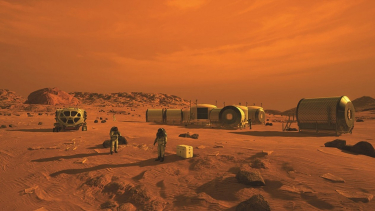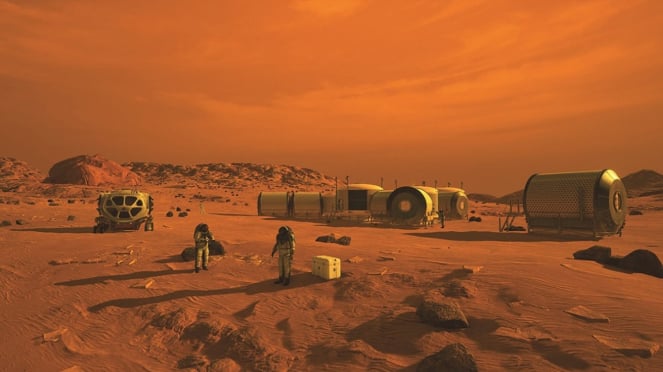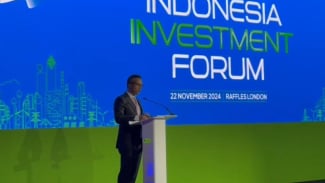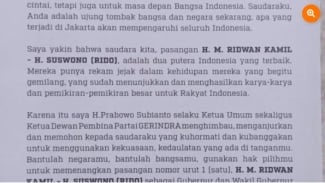Indonesian Scientist Involved in Research to Grow Food Crops on Mars
- DottedYeti
VIVA – Advances in technology and science in the future will make humans multi-planetary creatures. Therefore, they are preparing various supporters of life beyond Earth, one is about food.
Recently, researchers have been trying to grow food crops on Mars. It turns out there is one scientist from Indonesia involved in this research.
She is Yheni Dwiningsih, a plant scientist at the Department of Crop, Soil, and Environmental Sciences at the University of Arkansas, United States.
In the study titled 'Rice Can Grow and Survive in Martian Regolith with Challenges That Could be Overcome Through Control of Stress-Related Genes', the research team simulated Martian soil using basalt-rich soil mined from the Mojave Desert or called the Mojave Mars Simulant (MMS) developed by scientists from NASA and the Jet Propulsion Laboratory.
"One of the biggest challenges to growing food on Mars is the presence of perchlorate salts that have been detected in the planet's soil and are generally considered toxic to plants," the researchers wrote.
The team then planted three rice varieties, including one wild type and two gene-edited strains with genetic mutations, allowing the plants to better respond to stress, such as drought, sugar shortage, or salinity.
Ilustrasi koloni manusia di Planet Mars.
- SpaceNews
These varieties were grown in the MMS, as well as a regular potted mix and a hybrid of the two. While plants were able to grow in the Martian simulant, they were not as developed as those grown in the potting soil and hybrid mix. Replacing just a quarter of the Martian simulant with potting soil resulted in improved development.
The team also experimented with the amount of perchlorate in the soil, finding that 3 grams per kilogram were the threshold beyond which nothing would grow, while mutant strains could still root in 1 gram per kilogram.
Their findings suggest that there might be a way forward for genetically modified rice to find purchased in Martian soil.
The next steps will include experimenting with a newer Martian soil simulant called the Mars Global Simulant, as well as other rice strains that have increased tolerance for higher salt concentrations.
An important part of the research will be determining to what degree perchlorate may be leeching into the plant from the soil. Farther down the road, the researchers would like to introduce rice into a closed habitat chamber and place it in a Mars simulation chamber that replicates the temperature and atmosphere of the planet.
In the study, Yheni Dwiningsih was asked to be a co-author. While the lead author was Peter James Gann, a doctoral student in cell and molecular biology, who said that the project started when he met Ramachandran for coffee in the student union.
"He was new here at the university, and we shared things that we were doing in each other's labs. Since he works on planetary science, and I specialize in cell and molecular biology, we decided to try our hand at plants," she says.
The abstract's second author, Abhilash Ramachandran, a post-doctoral fellow at the Arkansas Center for Space and Planetary Sciences, notes that he spoke to an Australian researcher from an area where the soil has high salinity, and saw their work as a potential way to grow food there.
"We can use Earth as a terrestrial analog before seeds are sent to Mars," Ramachandran added.
Yheni Dwiningsih is a post-doctoral fellow in plant science. There is also Dominic Dharwadker, an undergraduate student in the Honors College, and Vibha Srivastava, a professor in the Department of Plant, Soil and Environmental Sciences who has a joint appointment with the U of A System Division of Agriculture.



























